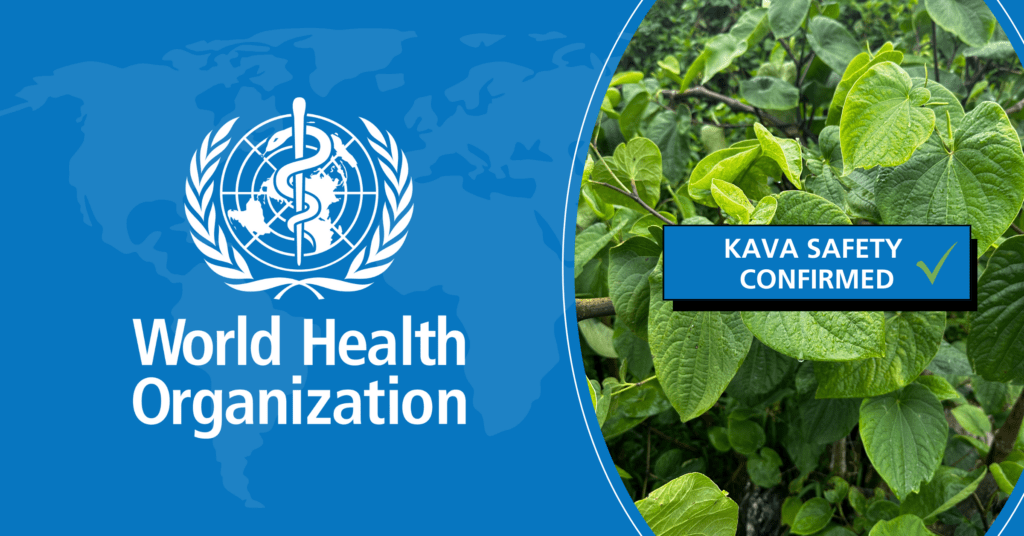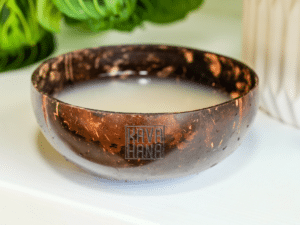In a decisive turn for the kava community, recent insights have emerged from a study by the World Health Organization (WHO) that firmly debunks the long-standing myth associating kava with liver damage. Although published years ago, this study has only recently gained the spotlight, challenging the once-prevalent skepticism surrounding kava’s safety profile. The revelatory findings come as a boon to advocates of this traditional herbal remedy, reinforcing its benefits for relaxation and wellness and its integral role in fostering a culture of serenity.
The cornerstone of this pivotal shift is the WHO study aptly titled “Assessment of the risk of hepatotoxicity with kava products.” This exhaustive review starkly contrasts past research that propagated apprehensions about kava’s safety. The authors of the study undertake a meticulous dissection of the earlier allegations linking kava to liver damage, ultimately highlighting the absence of compelling scientific evidence to substantiate these claims. Through a systematic deconstruction of the former hypotheses, the study beckons readers and specialists alike to reassess their perspectives on kava’s safety credentials.
Delving into the heart of the WHO study helps us understand the magnitude of its findings, underscoring kava’s safety and benign essence and reevaluating its significance in cultural rituals and holistic well-being practices.
Tracing the origins of the kava liver damage myth
Native to the South Pacific, kava has been celebrated for its therapeutic properties for over 3000 years. Traditionally prepared as a drink from the root of the kava plant, kava has been a staple in the medicinal, social, and ceremonial life of Pacific Islanders. Its calming effects have transcended borders, and various derivatives, including extracts, concentrates, and mints, have found a global consumer base.
However, the late 1990s witnessed a burgeoning controversy when kava was implicated in several cases of severe liver damage in Europe and the United States. Reports of liver damage were attributed to the intake of kava products, leading to stringent regulatory actions, including an outright ban in European countries. This instigated widespread debates concerning the veracity of liver damage claims and the consequent socioeconomic repercussions on kava-exporting economies.
Contrarians pointed to the extensive history of kava’s safety in being consumed among Pacific Islanders and contested the ban, citing the herb’s favorable safety profile compared to conventional anxiolytics. The discord even resonated within regulatory bodies, with German experts decrying the kava prohibition as a disproportionate response unsupported by scientific consensus and later declaring kava to be safe.
WHO study insights: Demystifying the liver damage allegation
In a comprehensive analysis, the WHO study establishes that both experimental and clinical trials largely exonerate kava from allegations of hepatotoxicity. The researchers underline that water-based and noble kava products pose no risk of liver complications when used appropriately. Scrutiny of purported instances of kava-attributed liver conditions suggests extraneous factors, possibly overshadowing kava’s substantially positive benefit-risk quotient, especially when juxtaposed with pharmaceutical interventions for anxiety disorders.
In other words:
In the face of rigorous scientific scrutiny, the myths unravel: kava’s alleged link to liver damage stands unsubstantiated. With confidence grounded in research, we assert definitively: kava is safe.
The study’s revelations are momentous, indicating an incidence rate of plausible kava-related hepatotoxicity at a negligible 0.02 cases per one million daily doses, a statistic that pales in comparison to the risks entailed by mainstream anxiolytics like diazepam. Critics argue that past analyses have been marred by a tendency to overinflate risks while downplaying kava’s safety and therapeutic efficacy. A synthesis of data from diverse studies corroborates that neither kava nor its active components, kavalactones, are implicated in liver toxicity under traditional usage scenarios.
For those seeking an in-depth understanding, the full WHO study details its methodology, conclusive insights, and propositions for future research directions, reinforcing kava’s vindication from the hepatotoxicity myth.
World-Health-Organization-Assessment-of-the-Risk-of-Hepatotoxicity-with-Kava-ProductsConclusion
The WHO’s affirmation of kava’s safety is a landmark development for connoisseurs and newcomers to kava culture alike, validating its traditional role in promoting tranquility and wellness. As Kavahana, we pride ourselves on endorsing responsible kava consumption, celebrating its holistic benefits, and contributing to an informed, health-conscious community. This new chapter in kava’s history not only dispels fears but also paves the way for renewed research and global acceptance of this time-honored herb.
Source:
World Health Organization (WHO) Paper: https://iris.who.int/bitstream/handle/10665/43630/9789241595261_eng.pdf?sequence=1&isAllowed=y
* Please note that the majority of kava research pertains to kava extracts, which often undergo significant processing and may contain additional ingredients and fillers that can influence their efficacy. It is crucial to consider this distinction when reading about kava studies. To draw an analogy, enjoying natural kava as a beverage can be likened to experiencing a freshly brewed cappuccino, whereas kava extracts are akin in functionality to a caffeine pill. Both forms have their unique benefits and can cater to different preferences and needs. While it’s helpful to understand research on kava extracts, please view it critically and remember that natural kava offers a uniquely holistic experience.







